Technical University of Crete (TUC) Greece

The Technical University of Crete (TUC) has an excellent international reputation in the field of science and technology. It has more than 6000 students and 115 faculty members. TUC consists of five Engineering Schools and performs research in cutting-edge technological fields, in collaboration with other research institutes and industries. Sustain-COAST project will be carried out at the School of Environmental Engineering (EnvEng). Research at EnvEng aims to develop innovative solutions to the environment’s most daunting challenges. From addressing waste management, the energy needs of tomorrow to the water resources and climate change, EnvEng’s research efforts are enhanced through creative collaborations with leading research institutes and Universities around the world. Thanks to various national and international projects, EnvEng has developed important expertise regarding coastal groundwater resources management in relation with numerical modelling activities and GIS tools. These topics are directly linked to Sustain-COAST challenges (WP2-5).
Role in the project:
TUC is the coordinator.
Principal investigator:
Centre for Environmental Research (UFZ) Germany

The Helmholtz Centre for Environmental Research (UFZ) was founded in 1991 and has more than 1,100 employees on its premises in Leipzig, Halle and Magdeburg. The UFZ is one of the world’s leading research centres in the field of environmental research, enjoying high social recognition. It demonstrates ways in which a sustainable use of our natural resource base is possible for the benefit of both humankind and the environment. Biodiversity, functioning ecosystems, clean water and intact soils all make up our natural resource base. In the face of global change, employees at the Helmholtz Centre for Environmental Research – UFZ are united by the goal of demonstrating ways to combine societal development with a healthy environment. The UFZ conducts excellent research and takes on a shaping role in the scientific community. As a reliable partner, the UFZ supports the political arena, the economy and the general public to better understand the consequences of human actions on the environment and to develop options for social decision - making processes.
Role in the project:
The UFZ is the leader of WP3: Socio-economic assessments and Task 2.2 entitled “Use of integrated high-resolution monitoring approach” in WP2: Integrated monitoring, modelling and wastewater reuse.
Principal investigator:
Euro-Mediterranean Information System on know-how in the Water sector (SEMIDE) France
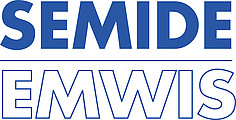
The Euro-Mediterranean Information System on know-how in the Water sector is an initiative of the Euro-Mediterranean Partnership initiated by a Ministerial conference on fresh water in 1996. SEMIDE provides a strategic tool for exchanging information and knowledge in the water sector between and within the 43 Euro Mediterranean countries of the Union for the Mediterranean (UfM). SEMIDE was a key pillar of the MEDA-Water programme (2002-2008) and is involved in the support mechanism of SWIM II (Sustainable Water Management in the Mediterranean, 2016-2019). In addition, SEMIDE has being translating the EU Water Frame Directive principles and the European Union Water Initiative lessons as well as European water innovation practices to the southern Mediterranean countries (Northern Africa & Middle-East). SEMIDE has contributed significantly to the Mediterranean Water Strategy and the Strategy for Water in the Western Mediterranean (WSWM). In the framework of the Union for the Mediterranean, SEMIDE is developing the Mediterranean Water Knowledge Platform to support the effective implementation of Integrated Water Resources Management in the region with all the stakeholders.
Role in the project:
SEMIDE is the leader of WP6: Dissemination and communication strategy.
Principal investigator:
Strasbourg University (UNISTRA) France
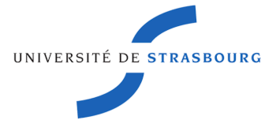
The University of Strasbourg in Strasbourg, Alsace, France, is the second largest university in France (after Aix-Marseille University), with about 46,000 students and over 4,000 scientists. The French university traces its history to the earlier German-language Universität Straßburg, which was founded in 1538, and was divided in the 1970s into three separate institutions: Louis Pasteur University, Marc Bloch University, and Robert Schuman University. On 1 January 2009, the fusion of these three universities reconstituted a united University of Strasbourg. With as many as 18 Nobel laureates, the university is now ranked among the best in the League of European Research Universities.
The LHyGeS (Laboratory of Hydrology and Geochemistry of Strasbourg) is one of the two mixed research units (CNRS, University of Strasbourg) of the Earth Science Department “EOST” at the university. The team involved in the project is developing research on water resources management including remediation and particularly numerical modelling of groundwater flow and reactive transport of pollutants in the subsurface.
Role in the project:
UNISTRA is leader of the task 2.4, under WP2 and with the contributions of the other Partners will be responsible for the elaboration of numerical modelling of coastal aquifer water flow and quality progress.
Principal investigator :
University of Sassari (NRD-UNISS) Italy
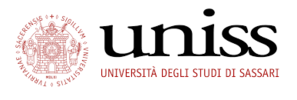
The University of Sassari (UNISS) is an Italian public University founded over 450 years ago,with a staff of some 550 researchers and professors organized in 10 departments and several research Centres. The Desertification Research Centre (NRD-UNISS) is an interdisciplinary centrefounded in 2000 which develops research, cooperation for development, networking and teaching activities. NRD-UNISS involves some 40 academics of 8 departments, 20 among post-docs, PhD students and administrative staff and is supervised by an independent Scientific Committee. NRD-UNISS main research activities focus on sustainable water management; integrated management of coastal areas; desertification and recovery of degraded lands; agronomy and adaptation of agricultural systems to climate change; rural development and poverty reduction in Mediterranean areas, Africa and Latin America. NRD-UNISS researchis based on participatory and systemic approaches and the engagement of multi-stakeholder platforms.
Role in the project:
NRD-UNISS is leader of WP4 “Innovative governance” and provides methodological support to the other Partners on stakeholder engagement,participatory and innovative approaches, as well as the mediation of environmental conflicts. NRD-UNISS also provides specific expertise on water resource management from agronomic and hydrogeological perspectives and coordinates the living lab on sustainable water management in the coastal areas in Sardinia.
Principal investigator:
Water Researches and Technologies Center (CERTE) Tunisia
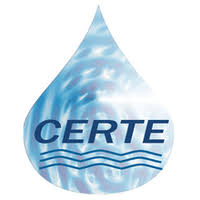
The Water Research and Technologies (CERTE) is a scientific and technical public research centre that has been set up in 2005 to replace the “National Institute for Scientific and Technical Research (INRST)”, which was founded in 1983. CERTE, located in the Borj Cedria Echo-park, has 195 staffs including 110 researchers and engineers. It focuses on sustainable water management and environmental preservation-related issues. It is the unique national research centre which is specialized in particular on water resources management and wastewaters reuse and valorisation for sustainable development. The CERTE is playing a leading role in water research and knowledge transfer at national and regional levels. It is considered as the pioneer in implementing real demonstration pilots for the strengthening wastewaters-related-sciences wide-spreading. CERTE has cumulated significant expertise and know-how regarding water resources integrated management in general and local wastewaters management in particular, thanks notably to his participation in several EU projects.
Role in the project:
CERTE is the leader of WP2 “Integrated monitoring of case studies aquifers and the modelling and promotion of mitigation technologies for wastewater reuse”. It is responsible to carry the Tunisian case study out (Wadi El Bey), to support the main polluters in each Sustain-Coast case study in adopting the best available wastewater treatments technologies (Task 2.3), and to promote capacity building in the framework of the 4R principles “Reduction, Recycling, Reuse, Recover”.
Besides, CERTE will exploit its expertise as well as its network to implement an innovative governance system for Wadi El Bey site (WP2-6).
Principal investigator:
Mersin University (MEU) Turkey
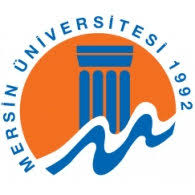
The University of Mersin (MEU) is a public University with a financial autonomy controlled by the Turkish Council of Higher Education. It was established in 1992 and includes an academic staff of some 1731 academic personnel in 18 faculties and 31 research centres. Environmental Engineering, Geological Engineering and Biology departments are the departments where many master-doctoral theses and scientific research related to soil, water and plant interaction are made. In addition, the central laboratory in the university and the laboratories within the departments provide infrastructure for this research. Additionally the expert scientists in innovative methods such as geographic information systems in this departments, plays a very important role in the transfer of science to practice in theory. In Sustain-COAST, MEU will be leader of WP5 "Decision Support System" and will form an infrastructure for sustainable water management by creating groundwater susceptibility maps and availability maps in the direction of the expertise gained.
Role in the project:
MEU is the leader of WP5: Decision Support System
Principal investigator :
